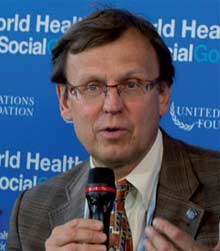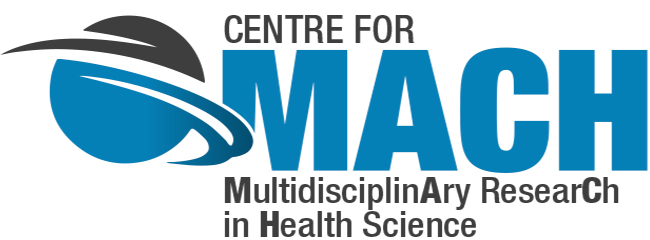
Infectious Diseases
The Infectious Diseases Unit aims to prevent, diagnose and treat the
broad spectrum of infectious problems recognized in modern medicine.
Its director, Professor Andrea Gori, dedicated his research career
to mycobacterial infections, HIV and multidrug-resistant organisms
involved in hospital-acquired infections.
The Infectious Diseases Unit is an international landmark and leading
centre for emerging infectious diseases and, by its location inside the
hospital, makes the Institute a unique model of collaboration between
researchers, healthcare professionals, patients and community
representatives. The Infectious Diseases Unit carries out translational
research in collaboration with research and healthcare centres
worldwide, moreover, develops and participates in clinical trials to
evaluate novel therapeutic strategies.
The Infectious Disease Unit is also responsible for developing strategies
oriented to a wiser use of antimicrobial drugs, and recommendations
aimed to reduce the incidence of hospital-acquired infections,
particularly those caused by multi-drug-resistant organisms.
Andrea Gori
Graduated from Medical School
at the University of Milan.
Full Professor of Infectious Diseases
at the University of Milan and Head
of the Infectious Diseases Unit
at Ospedale Luigi Sacco,
University of Milan.
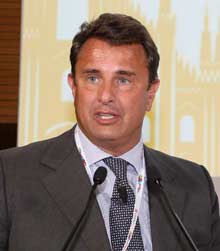
Infectious Diseases
The Infectious Diseases Unit will extend its clinical research on HIV,
HCV coinfection, non-AIDS cancers, immune-markers of clinical
progression and issues related to special populations through cohort
studies.
Its Director, Professor Antonella d’Arminio Monforte, has been mainly
involved in clinical research on HIV, in particular on diagnosis and
prognosis of HIV-related opportunistic diseases, vertical transmission
of HIV and HBV, diagnosis of HIV related CNS diseases, AIDS and non-
AIDS cancers, clinical trials and observational studies on antiretrovirals
(ART), resistance to ART and clinical implications, presentation and
prognosis of HIV among women, and the role of inflammation, immuneactivation
and intestinal microbioma in the disruption of the immune
function and in progression of HIV.
She is President of the ICONA Cohort, a multicenter cohort, involving
52 clinical centers across Italy and recruiting HIV positive patients naïve
from antiretrovirals. The cohort is one of the most important worldwide,
now accounting for more than 16.000 HIV-positive individuals. ICONA
Cohort stands apart as the only cohort capable of supplying reliable
data on the impact of initial treatments on epidemiological, clinical,
biological, and behavioral parameters. She is also the director of
the post-graduated school of infectious and tropical diseases of the
University of Milan and member of the board of the PhD School on
clinical research at the university of Milan.
Antonella d’Arminio Monforte
Graduated from Medical School at the University of Milan. Full Professor of Infectious Diseases at the University of Milan and Director of the Clinic of Infectious Diseases of the Department of Health Sciences at the ASST Santi Paolo e Carlo, in Milan.
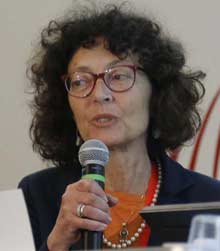
Immunology and Immunopathology
The Immunology and Immunopathology unit (IIU) analyzes the
pathogenetic basis of communicable and non-communicable diseases
in humans.
The IIU is coordinated by Professor Mario (Mago) Clerici, M.D., who
received his training at the NIH in Bethesda, USA and has focused his
research activity on the immunopathogenesis of infectious diseases,
autoimmune conditions and chronic neurologic diseases.
The IIU will perform state-of-the-art translational research on these
pathologies and, in collaboration with the IRCCS Ospedale Maggiore
and the most prestigious research organizations worldwide, will expand
its research horizons to include the immunology of organ transplantation,
metabolic and degenerative conditions and inherited coagulopathies.
The IIU will collaborate with the PhD School of Translational Medicine
of the University of Milan in purveying excellence in research and will
become a pivotal player in the international scenario in organizing and
performing clinical trials and the development of novel vaccinal and
therapeutic approaches to human diseases.
Mario (Mago) Clerici
Graduated from Medical School
at the University of Milan.
Directed the PhD School in Molecular
and Translational Medicine at the
University of Milan.
Full Professor of Immunology
and Head of the Department of
Pathophysiology and Transplantation
at the University of Milano.
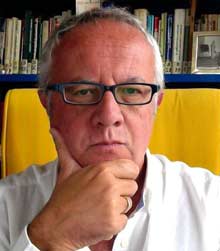
Global Health
Global Health activities, a key component of the new MACH (MultidisciplinAry ResearCh in Health Science) of the University of Milan established with the support of the Fondazione IRCCS Ca’ Granda Ospedale Maggiore Policlinico, are a unique mix of didactics and research towards “ensuring healthy lives and promoting well-being for all at all ages” (the United Nations’ Sustainable Development Goal 3 target). MACH aims at becoming a comprehensive and impactful contributor to the global health discussion internationally. The broad vision is that of addressing health inequities and improving access to “health for all” through didactic and research activities conducted in partnership with experts from other national and international centres and institutes sharing similar principles and aims in global health. MACH’s work in global health has the ultimate goal is to contribute to the development and implementation across disciplines, in full alignment with the United Nations Sustainable Development Goals (SDGs), of sound health policies and practices that ensure universal access to care and prevention for the most vulnerable people in Italy and the world. To achieve this, multidisciplinary research and education engaging young generations of students that will become future leaders and decisionmakers are essential. MACH activities in global health have therefore four essential goals: (1) Training and Education: to create a cadre of future passionate global health leaders capable of being “global health-sensitive” among committed students from different backgrounds, including biomedical sciences, economics, law, international relations, sociology, ecology, agronomy and all other related fields. As part of this programme, at UniMI teaching on the essentials of global health is now integrated as a module into the regular medical student curriculum – a unique situation in Europe – and a new 1-year online post-graduate Vocational Master Course in Global Health in collaboration with experts from prestigious academic institutions nationally and abroad; (2) Research: to contribute to identification of innovative ways of handling complex public health problems; (3) Health Policy: to focus on evidence generation that influences policy making by health authorities; and (4) Health Promotion and Advocacy: to pursue public awareness and understanding of global health values and healthy behaviours among students and civil society.
Mario Raviglione
Graduated from the University of Turin
and specialised in the USA (Cabrini
Medical Centre, NY, and Beth Israel
Hospital at Harvard Medical School,
Boston) in internal medicine, infectious
diseases and AIDS. He was director of
the Global Tuberculosis Programme at
the World Health Organization, Geneva,
between 2003 and 2017.
He is Full Professor in Global Health at
the University of Milan and Honorary
Professor at the Queen Mary University
of London, UK.
Contact: mario.raviglione@unimi.it
